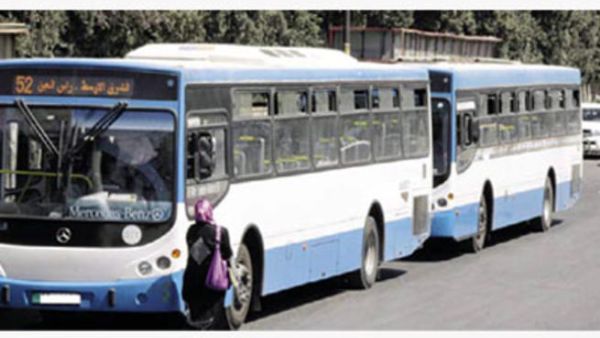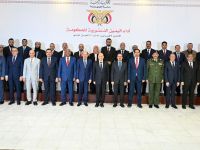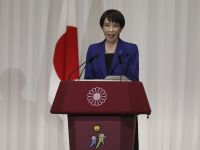Oman needs to accelerate its new public transport plan, especially if the number of expats issued driving licences is to be limited.
That was the overwhelming sentiment on the social media after the Times of Oman revealed that the Royal Oman Police (ROP) is holding discussions over cutting the number of expats eligible for a driving licence.
The story attracted more than 100 comments on facebook.com/timesofoman with a mixture of views, some welcoming the move but many saying that there should be a viable transport alternative for those who will be unable to drive. Speaking to Times of Oman, Ibrahim Al Hsani at the media department of Muscat Municipality said that a joint team including Muscat Municipality, ROP and Ministry of Transport is working on the public transport system.
“The joint team has been holding continuous meetings to discuss the public transport system issues,” said Al Hsani.
The clarification comes after the ROP mentioned plans to limit the issuance of driving licences among a certain segment of expatriates. Following the announcement, the public have been urging authorities to put in place a better public transport system before implementing the driving licence rule.
Salim Al Ghammari, a Muscat Municipal Council member, said the idea of new driving licence rule was suggested by the Municipal Council during a joint meeting held to discuss the public transport plan. Al Ghammari, however clarified that, “such a rule should be put in place only after a proper public transport is out in place.”
“We had urged the ROP not to issue driving licences to everybody and that it should be only for specific people among expatriates,” said Al Ghammari.
Al Ghammari also asked that if everybody is eligible for a driving licence then who will use public transport.
He added that the authorities concerned had promised to announce the Public Transport Plan last August and then said in September that “nothing has been announced so far”.
On Monday, TOO had carried an article about the authorities’ plan to announce new rules for expatriates applying for a driving licence.
A senior official at ROP had told TOO that, “We are coordinating with the Ministry of Manpower (MoM) to restructure the process of issuing a driving licence to expatriates”, adding that until now, anybody could apply for a driving licence.
While the move to reduce the number of expats with driving licences was welcomed by many, some members of the public wanted a better public transport system.
On TOO’s Facebook page, Brl De Mac said, “I don’t think the problem is with expats driving. It’s a fact that people here don’t share cars, Omanis or expats. Most cars you see on the roads have one person or two. If you want to cut the traffic then have car pools where people can share car journeys (for free) or get a bus system in place. (It) works everywhere else in the world. Dubai’s sky train is another good example of traffic reducing plan.”
Kuwait by 0.29 percent. However, Oman witnessed a fall of 0.14 percent.
Compared to the same month last year, the prices of the ‘Food and beverage’ group increased in August, 2015 in most of the GCC countries: in Kuwait by 5.62 percent, followed by Bahrain 2.9 percent, Saudi Arabia 2.1 percent, Qatar by 1.9 percent, and the UAE by 0.64 percent. In contrast, prices of this group fell in Sultanate by 0.89 percent.
In August, 2015, the ‘Housing, water, electricity, gas and other fuels’ group showed an overall increase across all GCC member the states compared to the same month last year. Rising by 9.85 percent in the UAE, followed by Kuwait by 6.54 percent and 3.9 percent in Saudi Arabia, Bahrain by 2.3 percent, Qatar by 2.2 percent and the Sultanate by 0.42 percent.
The ‘Transport’ group also recorded an increase in most GCC countries during the month of August, 2015 compared to the same month of the previous year. As the transport prices rose in the UAE by 10.72 percent, Qatar by 2.6 percent, Saudi Arabia by 1.7 percent, Kuwait by 0.40 percent, and Sultanate by 0.32 percent, In contrast, prices of this group fell in Bahrain by 0.5 percent.
The data showed that the highest price rises among the main expenditure groups by country in August, 2015 compared to the same month last year were as follows: The ‘Education’ group in both Qatar and the Sultanate by 11.1 percent and 4.49 percent respectively, followed by ‘Transport’ group in the UAE by 10.72 percent. The ‘Restaurants and hotels’ group in Kuwait by 6.88 percent, the ‘Health’ group in Bahrain by 4.5 percent, and ‘Clothing and footwear’ group in Saudi Arabia by 4.1 percent.
However, the largest price decreases among the major expenditure groups in each of the GCC countries in August 2015 compared to the same month last year were as follows: the ‘Clothing and footwear’ group in the UAE and Kuwait by 3.92 percent, and 1.77 percent respectively. The ‘Culture and entertainment’ group in Qatar by 3.5 percent, the ‘Restaurants and hotels’ group in the Saudi Arabia by 2.7 percent, the ‘Food and beverage’ group in the Sultanate by 0.89 percent, and the ‘Miscellaneous goods and services’ group in Bahrain by 0.7 percent.








